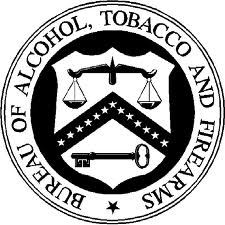Purchasing a Suppressor or other Title II Firearm/Device
UPDATED: Effective July 13, 2016 new requirements the ownership of NFA items as per the ATF 41F rule.
It defines a responsible person as“who [has] the power and authority to direct the management and policies of the trust or legal entity to receive, possess, ship, transport, deliver, transfer, or otherwise dispose of an NFA item for, or on behalf of, the trust or entity.”
When submitting a Form 1 for manufacturing or Form 4 for transferring every responsible person must include:
Two FD-258 fingerprint cards (CLEO signature is not required for the fingerprints or any other part of the application process).
A recent (within the last year) 2" x 2" photograph. Think passport photo.
An NFA Responsible Person Questionnaire Form 5320.23
A copy of the trust
$200 check or money
Prior to submittion to the AFT local CLEO must be informed of the NFA item. Simply create an extra copy of everything sent to the ATF.
Yes, it is legal to own to own silencer/suppressor, short-barreled rifle (SBR), short-barreled shotgun (SBS) and fully automatic weapon aka machine gun or Any Other Weapon (AOW) - grenades, poison gas etc. Most people refer to these items as Class III firearms but that’s technically incorrect. The proper term is “Title II firearm” as described in the National Firearms Act. For now, no matter which name you use anyone in the business will know what you are talking about.
Before obtaining your “Title II firearm”, (I’ll just refer to everything in the group as suppressors going forward) there are few hoops you’ll need to jump through to satisfy the BATFE/NFA requirements. And that’s where Phoenix Weaponry can help.
Let’s begin with the basic requirements:
You are over 21 years of age.
You live in one of the following states; AL, AR, AK, AZ, CO, CT, FL, GA, ID, IN, KS, KY, LA, ME, MD, MI, MO, MS, MT, ND, NE, NV, NH, NM, NC, OH, OK, OR, PA, SC, SD, TN, TX, UT, VA, WA, WI, WV, or WY. Please double-check your particular state. If you live in Colorado it is legal for you to own a suppressor.
You do not have a felony conviction. A felony conviction is generally any jail time over one year.
You would be able to purchase a weapon in a gun store i.e. pass the FBI National Crime Information Center (NCIC) background check.
If you qualify to purchase a suppressor you need to determine what type of ownership you want to have. There are three basic choices; personal, trust or corporate ownership.
Personal ownership - you are the registered owner of the suppressor. This is most appropriate if you only plan on purchasing one or just a few suppressors.
Advantages:
This is the least expensive method for obtaining a suppressor since there is no step up fee or delay creating a trust, corporation or LLC.
Disadvantages:
You must always be present when the suppressor is in use.
The suppressor cannot be passed on to other family members without a new tax stamp.
Trust ownership - a trust is a registered owner and you are the trustee act to secure the assets of the trust i.e. the suppressor. You’ll also have several choices setting up your gun trust. The most common are a Quicken or online trust, a standard revocable trust and gun trust set up specifically for suppressors.
Advantages:
All trustees have access to the suppressors in the trust.
Trustees can be added and removed
A trust can pass ownership of a suppressor from one generation to the next.
In most states, a trust does not require annual registration and thus your ownership can remain private from the general public.
Disadvantages:
You must locate a reliable trustee(s) and benefactor(s) for the trust. Typically a sibling, child or close friend. Someone you believe is responsible enough to access/own a suppressor.
There is a fee, time and effort associated with setting up a trust.
Each responsible person must submit a two fingerprint cards, a 2"x2" photo and Responsible Person Questionnaire.
Corporate Ownership - An LLC or corporation is the registered owner of the suppressor. This is handy if you happen to already have a corporation set up or plan on purchasing several suppressors. However, you should consult a lawyer if you plan on using a corporate identity you have already set up.
Advantages:
All officers have access to the suppressors in the corporation.
Officers can be added and removed from the corporation.
Disadvantages:
There is a fee, time and effort associated with setting up a corporation.
In Colorado and most other states, there is an annual registration and fee requirement. The fee in Colorado is $10/year.
You must keep the corporation in good standing.
Summary:
Gun trust must be set up correctly and if you use a Quicken or online trust you might not know the trust is invalid until it is time to enforce the trust. If the courts invalidate your trust (incorrect settlor/grantor, trustee, or beneficiary relationship) there could be an illegal possession charge with a fine of $250,000. For $10 per year, the cost to keep your corporation registered with the state you can be assured you have a valid corporation.
If you choose a legal entity i.e. trust, corporation or LLC to purchase a suppressor please contact a lawyer for legal advice.
Trusts
There are several gun trust options: Quicken or online trust, a standard revocable trust and gun trust set up specifically for suppressors. In this case, like so many others, you get what you pay for. Quicken or online trusts are less expensive than a trust from a lawyer but they might lack some components that make them a bulletproof method for registering your suppressor.
A gun trust specifically created for you and your personal needs by a lawyer is more expensive but has many advantages. Here are a few:
Most lawyers will continue to answer questions about your gun trust for years. This might be the most beneficial reason to have a gun trust created by a lawyer with whom you can speak that will address your personal needs in the trusts. Your lawyer will also be around for many years to come and will be the most reliable source to answer questions in the future.
Can address termination issues; prevent revocation of the trust while it holds items, allows time for transfer of items, prevents the selling of items that are meant to be passed down etc.
They will be familiar with all state and federal laws and will ensure your trust conforms to them.
Expressly allows for usage of suppressors.
A good lawyer can ask questions about how you want to use, maintain, transfer, etc. your suppressor and ensure those requirements are covered in the trust.
However, not all gun trust lawyers are equal. Ask around. You’ll most likely have friends or acquaintances from your range that can point you in the right direction. If you choose to use a lawyer ensure they are familiar with firearms laws and regulations perhaps they are even a firearms enthusiast or hunter.
Trust terminology can be a confusing but even more so if you are working with a gun trust. Let’s look at the people involved and their roles.
Settlor/Grantor is the person who funds the trust. With the direction of the trustee, the settlor/grantor will use the funds in the trust to purchase a suppressor.
The trustee is the person holds/manages/uses the items in the trust. You should spend some time considering who the trustees, beside yourself, are going to be (your spouse, sibling, and or close friend).
○ A trustee will have full access to the items in the trust.
○ A trustee should be able to own and use a suppressor i.e. no felony convictions. One of the main reasons for setting up a trust to enable more than one person to have control of the item.
Beneficiaries are persons who will receive the items/suppressor in the event of the death of the all the trustees (your siblings, your children, yes minors too, or close friends).
○ The settlor/grantor cannot also be the beneficiary.
○ Ensure the person you select is reasonable.
Other trust notes:
Your gun trust should enable the trustee to “use” the items in the trust. After all, that is why you are setting up a trust. Ensure your trustee authorizes the use of the items in the trust or you could be charged with waste. Selecting the right trustee is very important.
There are arguments about funding a trust before making your suppressor purchase. The bad scenario goes like this. If you purchase your suppressor, then create a trust, then submit paperwork to transfer the suppressor to the trust, then the suppressor has already been technically been illegally transferred. To purchase a suppressor using a trust you must first setup the trust and fund the trust. Then use the funds in the trust to purchase your suppressor. Funding a trust requires getting a taxpayer id number from the IRS and setting up a new account at a bank.
Quicken, online and general revocable trusts may not contain the provision needed to ensure you’ll have the proper ownership and usage. The best trust ownership method is a gun-specific trust.
The ATF and NFA
The ATF now also known as the (BATFE) Bureau of Alcohol, Tobacco, Firearms and Explosives is responsible for enforcing the National Firearms Act (NFA) of 1934 and Gun Control Act (GCA) of 1968.
The NFA was created in 1934 to help control gang violence. Where “criminals” could be arrested for possession of an NFA suppressor/NFA regulated item without the proper tax stamp. The NFA law required all suppressors to be registered and pay a $200 tax stamp fee. This is the $200 tax stamp you must purchase and keep with the suppressor at all times. The fee was intended to discourage suppressor purchases since $200 in 1934 is equivalent to about $3400 in 2012.
In 1968 the NFA was revised closing a loophole in the registration process and adding and a new category of Destructive Devices (DD) such as grenades, bombs, missiles, poison gas etc.
Safeguarding your suppressor
You must maintain control of your suppressor at all times. In there is no excuse for letting any unauthorized person obtain control of your suppressor. The only person that should have access to the gun safe (and you MUST purchase a gun safe to secure your suppressor) is the person on the transfer form, the trustee in the gun trust or the officer of a corporation, depending on how the suppressor was transferred. Failure to maintain control of your suppressor puts both the person who has it and you in violation of NFA laws.
FAQ
Should every trustee be able to pass an NCIC background check?
Yes, everyone involved trust or all the officers of the corporation should be able to pass an NCIC background check.
How do I remove/change a trustee?
Attach an amendment. A document that changes the terms of a trust is called an amendment. Anyone else who executed the original trust instrument with you (a spouse usually) must also sign the amendment. Like the original, it should be witnessed and, if possible, notarized. The amendment can simply identify the terms of the original trust that are being changed and include new language to take its place.
How do I remove/change an office in a corporation?
You’ll need to file an amended a business license with the state.
How important is it to fund a gun trust with money before making a purchase that you want to transfer into a gun trust? Can you simply fund the trust with a suppressor?
No, funding a trust with a suppressor implies an illegal transfer or possession. Only your trust/corporation should purchase a suppressor unless you are going transfer ownership to yourself/personally.
For legal advice Phoenix Weaponry recommends:
Brian R. Luther, Esq.
(720) 209-5055 (phone)
brianrluther@hotmail.com
Adam L Weitzel, Esq.
(719) 355-8840 (phone)
(719) 694-3714 (fax)



